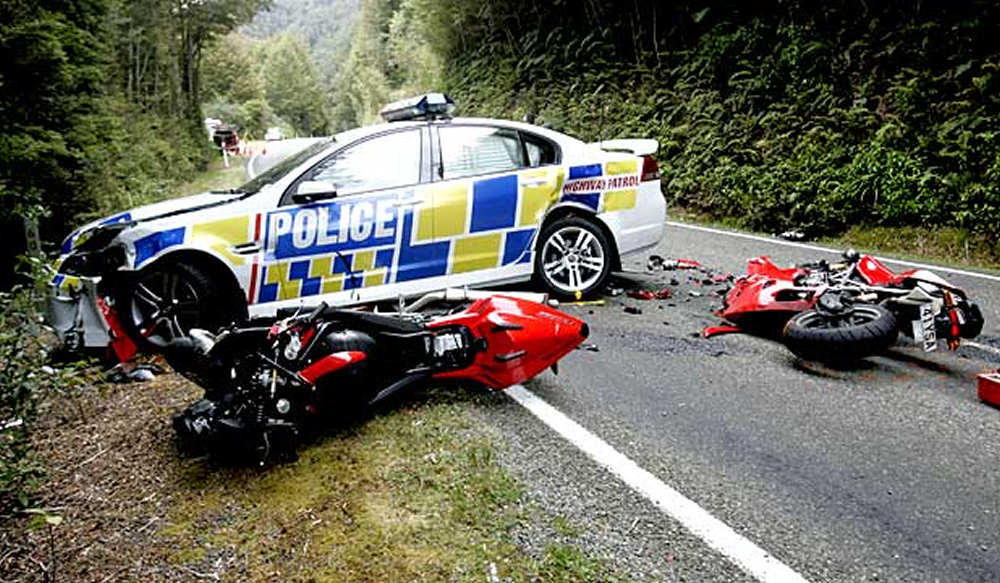


The information below is the same advice that we give to learner drivers on the DriverActive web site. As with many aspects of driving, the advice offered to learners is very similar to that offered to 'advanced drivers', however, as an advanced driver you will be expected to do everything to a higher standard.
A basic criteria for any manoeuvre is that the location must be Safe, Legal and Convenient.
Lets face it, finding a safe place is fairly basic... But not everyone applies basic common-sense after they pass their tests.
The photo below was taken in 2007 and shows a New Zealand police car – the driver was doing a 'three point turn' on a bend.
This driver was a 33 year old licensed police officer but he still made a basic error.

When we talk about safety, safe locations, safe speed and the basic information that you will find over at DriverActive we are not talking about stuff to do for the driving test – we are talking about stuff you do to stay alive and to keep your future pupils alive!
You must not endanger yourself or others.
Hopefully this is fairly obvious! However, there are times when experienced drivers think that it is safe to take a chance 'just this once'...
Safe means that you must choose a location where you have a good clear view and where others can see you easily.
Examples of unsafe locations include:
You should ideally choose a place where there are no obstructions on the edge of the road; lamp-posts or bollards on the kerb can cause a lot of damage if you drive into them!
Legal means that you must not infringe any laws or drive in a careless or dangerous manner. For example it would be illegal to turn around in a one-way road. If you do not give your full attention to driving (at any time) and use the utmost care and attention you could be prosecuted.
Convenient means that you must not cause undue inconvenience to others - remember, you are the 'odd one out' when manoeuvring, because of this you must always be prepared to give way to others.
If you have chosen a safe and legal location you will probably not cause inconvenience, however it's important to recognise the rights and reasonable expectations of others. For example, while you are practising it is a good idea to use different roads to practise manoeuvres to avoid upsetting residents of any particular street - this advice is also important when teaching your future customers.
Next: Comfort, observation, control and accuracy